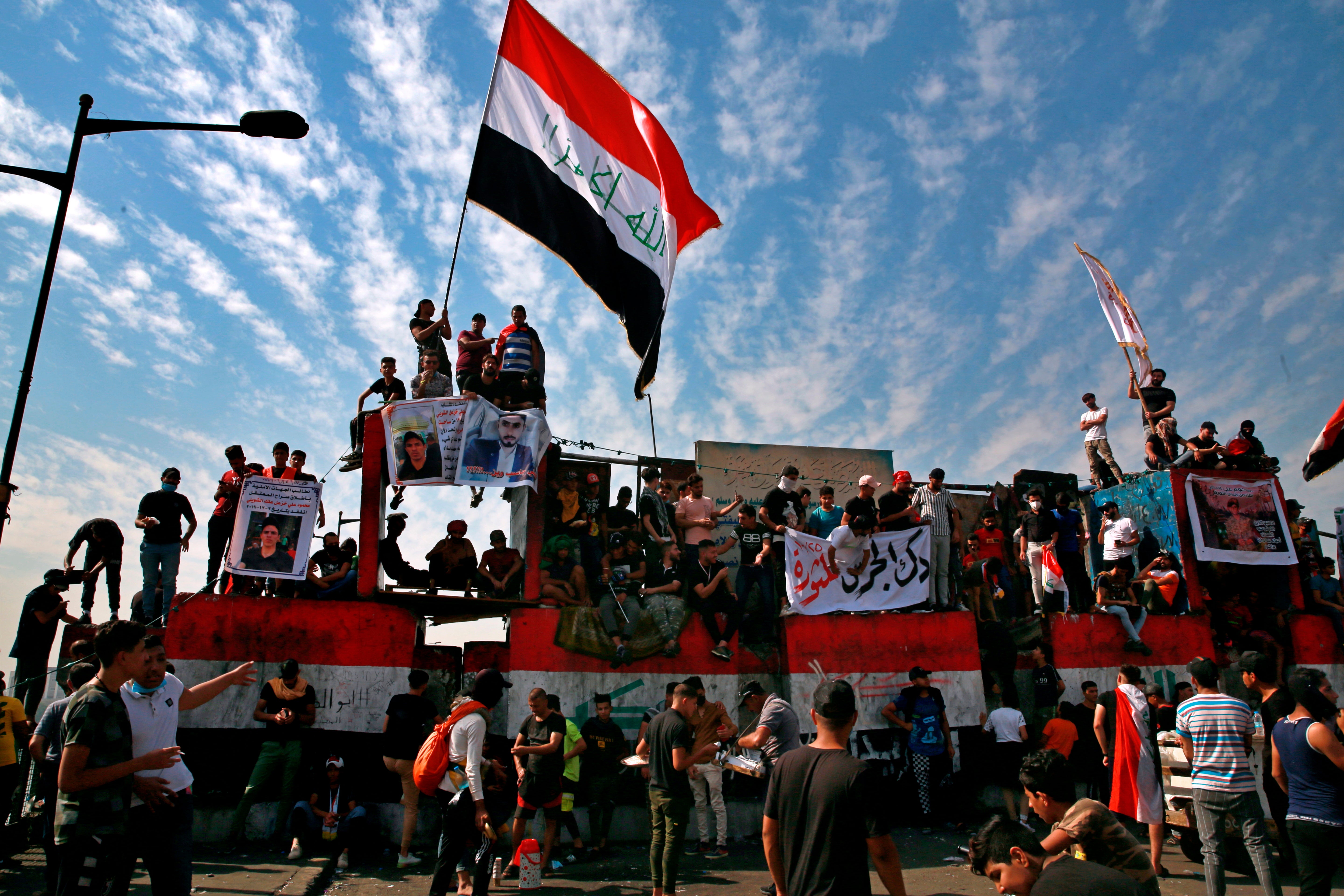Thousands rally in Iraq to mark one year of protests
Thousands of Iraqi protesters have taken to the streets to mark one year since mass anti-government demonstrations swept Baghdad and Iraq’s south

Your support helps us to tell the story
From reproductive rights to climate change to Big Tech, The Independent is on the ground when the story is developing. Whether it's investigating the financials of Elon Musk's pro-Trump PAC or producing our latest documentary, 'The A Word', which shines a light on the American women fighting for reproductive rights, we know how important it is to parse out the facts from the messaging.
At such a critical moment in US history, we need reporters on the ground. Your donation allows us to keep sending journalists to speak to both sides of the story.
The Independent is trusted by Americans across the entire political spectrum. And unlike many other quality news outlets, we choose not to lock Americans out of our reporting and analysis with paywalls. We believe quality journalism should be available to everyone, paid for by those who can afford it.
Your support makes all the difference.Thousands of protesters took to the streets on Sunday to mark one year since mass anti-government demonstrations swept Baghdad and Iraq s south sparking hope for change and calls to end to rampant corruption.
Protesters marched in the capital and several southern cities including Najaf, Nasiriyah and Basra to renew demands proclaimed a year ago to bring an end to corruption by politicians.
Mustafa Hussein, in his 20's, participated in the demonstrations last year and returned to Baghdad's Tahrir Square on Sunday. He said little had changed.
“Our demands that we wrote with the blood of our martyrs are still on the lists of officials without implementation,” he said.
More than 500 people were killed during the months-long movement that began last year, many of them protesters shot by Iraqi security forces who used live ammunition and tear gas to disperse crowds. Often tear gas cannisters struck the heads of demonstrators killing them instantly.
By February, the protests had petered out in the wake of coronavirus lockdowns and restrictions, prompting activists to call off mass marches and sit-ins.
An order by the Baghdad Operations Command, which oversees security forces in the capital, kept many hundreds more demonstrators from entering the city on Sunday from the provinces of Babylon and Diwanieh.
In Baghdad's Tahrir Square, which has been the epicenter of the protest movement, Iraqi youth carried banners with portraits of those killed by Iraqi security forces. The protesters erected tents and created their version of utopia replete with food vendors, cinemas and bookshops.
“Today we mark the memory of the October Revolution, especially those fallen,” said Fadel Ahmed, 25, a graduate of economics. “Our demands are against corrupt parties in power and against the failed parliament."
In October of last year, tens of thousands of Iraqis - mostly youth - marched in Baghdad and cities in the south to decry government graft, unemployment and poor services. Demonstrators took over public squares in Baghdad and camped out for months, refusing to leave until their demands were met.
The movement had early successes. Pressure from demonstrators lead to the resignation of Adil Abdul-Mahdi's government. Mustafa al-Kadhimi assumed the premiership after months of political deadlock and after two previous candidates failed to garner enough support among elites.
Al-Kadhimi has presented himself a champion of the protesters' demands, appointing long-time activists among his close group of advisors. He promised that early elections, a key demand of protesters, would be held next June.
Despite crackdowns from militias and the government, protesters say their movement is still alive.
“We have only this revolution to achieve our goals,” Ahmed said. “If it can’t, Iraq will be lost.”